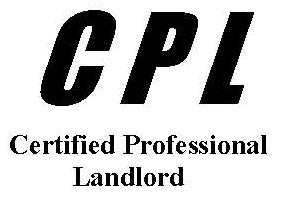I have probably had at least a hundred people ask me whether or not they should get a real estate license in order to invest in real estate. There is no quick and easy answer to this question. The answer really depends on what you plan to do in your investment career.
 (Registered Trademark of NAR)
(Registered Trademark of NAR)
A real estate license is typically for someone who wants to work with other people to help them buy, sell, or lease their real estate. That is what a traditional real estate licensee (the legal term in Florida is "sales associate") does. Most investors are not planning on working with others, but I do know many sales associates who invest in real estate as a side business.
There are really two main reasons to get a real estate license outside of doing traditional sales associate services. Reason #1 is to obtain access to the local Multiple-Listing Service (MLS for short). The MLS is the database used by nearly all residential sales associates to advertise their listings to other sales associates and to get their listings posted onto major websites like Realtor.com. The MLS has information on all listings past and present in the area including solds and expireds. It makes checking for comparable sales easy. MLS access can only be obtained by dues paying Realtors®, assistants to dues paying Realtors®, and licensed real estate appraisers. A few people have asked me to let them be my assistant, but our local MLS has a limit of 2 assistants per Realtor® because they know that people try to get around their licensing rules. There is also a way to be what is known as a "Thompson Broker" and join the MLS without being a dues paying Realtor®. To be a Thompson Broker, you still need a real estate license and the annual fees are about double those of Realtors®, so I do not see any benefit in going that route.
Reason #2 is to legally get paid commissions or referral fees without being a principal in the transaction. Some investors are going to be quite upset by what I say here, but it is the truth. In Florida unless you are a principal in a transaction AND you have "substantial consideration" (meaning money to possibly forfeit) on the line to tie up the contract, you cannot bring buyers and sellers together and get paid a fee. You also need a real estate license to be a property manager for another person. In fact in Florida it is a 3rd degree felony to do any of this without a license and the presumption is upon you to prove that you are not acting illegally. (Reference: Chapters 475.41, 475.42, and 475.43 Florida Statutes.) I know several very prominent investors who have been fined by the State of Florida for unlicensed real estate activities. I will not beat on this any further except to ask you to check the law for yourself. My goal here is not to scare anybody but to open your eyes to some mis-information that is being taught out there.
Here are a few of the other positives for obtaining a license. 3. The educational benefits from courses offered and trade magazines and newsletters. 4. Access to the legal hotline and the technology hotline. (The technology hotline is fantastic for non-computer techies like me.) 5. Ability to show properties to yourself without needing another sales associate to accompany you. A big obstacle if you are making lots of offers on listed properties. 6. Favorable income tax rules regarding active vs. passive income and tax write-offs. (Ask your tax adviser.) 7. You can offer to list properties that do not make sense to purchase as an investment.
Now, for the negatives for obtaining a license. 1. Educational requirements - pre-licensing, post-licensing, continuing education, and several tests are mandatory. 2. The costs time and money for the license, the application, and annual dues with the State, the board of Realtors®, and the MLS. You only need to join the board of Realtors® if you want access to the MLS though; you can still legally get paid a commission without joining the board of Realtors®. 3. Having to abide by the State real estate laws and the board of Realtors® Code of Ethics. (Unlicensed people still have to abide by the State laws regarding what you are not permitted to do with a transaction.) 4. Disclosure of your real estate license to potential buyers and sellers. (The Realtor® Code of Ethics is the only thing that requires this disclosure on your personal deals. State law does not. There are simple ways to get around this disclosure without it sabotaging a deal.) 5. Courts may hold sales associates to a higher standard then they would a non-sales associate. (However if you are doing lots of deals and are advertising yourself as a professional investor, you are going to be held to a higher standard than a layperson anyway. If you go to court, you still lose time and money even if you prevail.)
So what is my advice on getting a license? If you do not plan on listing and showing properties, do not get a license at least in the beginning. Do a few deals and find out if real estate investing is really what you want to do. After a few deals, then you can decide if you want to take the step of getting a license. Having the license is not for everyone, and there are plenty of successful investors that do not have a license. I have found it is better to get a license if you are doing many transactions on a regular basis or if you have a large portfolio of properties that you are working with. The more volume you do, the more you probably need the license. It does not necessarily need to be you that obtains the license though. I know many investment teams where a spouse, parent, child, friend, or employee gets the license and lets the other team members be their "assistant."
I hope this article has been enlightening to you. I do recommend that everyone take the real estate pre-licensing course. You can take it at many of the local community colleges or real estate schools. Even if you never get a real estate license, the course goes over many of the basics of real estate, the contract, and Florida law. The course can be a real eye-opener to investors. I know it was for me. Until next time ... happy investing.
---------------------------------------------------------------------------------------------------------------------
Copyright © 2008. Sand Dollar Realty Group, Inc. All rights reserved.
Rob Arnold, ABR, CPL, GRI, Managing real estate broker, Licensed mortgage broker, Notary Public,
407-389-7318 www.SDRhouses.com/
Your full service and investor friendly Realtor in Orlando. Learn to invest in Central Florida real estate and Orlando real estate. Investor mentoring and counseling available. I also provide flat fee MLS listings, For Sale By Owner, and menu-based services in Florida.
We buy houses cash in Central Florida including Orlando, Winter Park, Maitland, Ocoee, Apopka, Altamonte Springs, Casselberry, Longwood, Winter Springs, Lake Mary, Sanford, Deltona, and Debary. www.WeBuyHousesFlorida.com/







Comments(3)